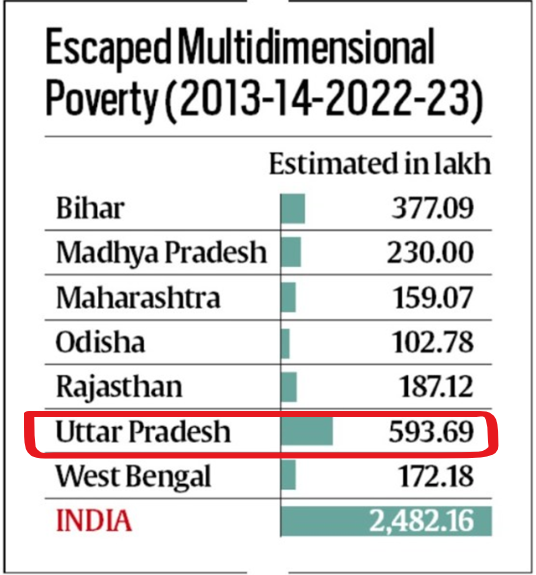
Medical Termination of Pregnancy (Amendment) Act
Subscribers of "Current Affairs" course can Download Daily Current Affairs in PDF/DOC
Subscribe to Never Miss an Important Update! Assured Discounts on New Products!
Must Join PMF IAS Telegram Channel & PMF IAS History Telegram Channel
- Context (TH): The Delhi High Court has permitted a widow to terminate her 29-week pregnancy, though she had crossed the 24-week limit.
- The woman was going through “immense trauma” and was showing “suicidal tendencies” after the death of her husband.
- The court relied on a 2022 SC judgment, which held that “it is a woman’s prerogative to evaluate her life and arrive at the best course of action given a change in her material circumstances”.
Medical Termination of Pregnancy Act (MTPA), 2021
- The Medical Termination of Pregnancy Act (MTPAA) 2021 amended the MTP Act 1971 to increase the upper gestation limit for termination of pregnancy under certain conditions.
- “The MTPAA” was passed due to the advancement in medical science regarding safer abortions.
- The MTPAA expands access to safe and legal abortion services on therapeutic, eugenic, humanitarian and social grounds to ensure universal access to comprehensive care.
- MTP,1971, legalises abortion in India up to 20 weeks of pregnancy when provided by a registered medical practitioner (RMP) at a registered medical facility.
- A written Consent of a guardian is required for termination of pregnancy in two cases-
- When a woman is below the age of 18 years or
- When a woman has a mental illness (irrespective of her age).
- The MTP Act defines a guardian as someone who cares for the minor.
- This does not imply that only parent/s are required to consent.
Features of MTPAA, 2021
- Termination due to Failure of Contraceptive Method or Device
- A pregnancy may be terminated up to 20 weeks by a married woman in the case of failure of a contraceptive method or device.
- It allows unmarried women to also terminate a pregnancy for this reason.
- Time limit and grounds for terminating a pregnancy
- The 1971 Act specifies the grounds and time limit for terminating a pregnancy.
- The MTPAA, 2021, amends these provisions.
- Upper Gestation Limit for Special Categories:
| Time Since Conception | Requirement for terminating Pregnancy | |
| MTP Act, 1971 | MTP (Amendment) Act, 2021 | |
| Up to 12 weeks | Advice from one RMP | Advice from one RMP |
| 12 to 20 weeks | Advice from two RMPs | Advice from one RMP |
| 20 to 24 weeks | Not allowed | Two RMPs for some categories of pregnant women |
| More than 24 weeks | Not allowed | Medical Board in case of substantial foetal abnormality |
| Any time during the pregnancy | If immediately necessary to save a pregnant woman’s life | |
- The Act Increases the upper gestation limit from 20 to 24 weeks for special categories of women.
- This includes survivors of rape, victims of incest and other vulnerable women (differently abled women, minors, among others).
- Medical Boards
- All state and UT governments will constitute a Medical Board.
- The Board will decide if a pregnancy may be terminated after 24 weeks due to substantial foetal abnormalities.
- The medical board is to provide a decision within three days of being approached.
- Confidentiality
- The “name and other particulars of a woman whose pregnancy has been terminated shall not be revealed” except to a person authorised in any law that is currently in force.
Key Issues and Analysis
- Different opinions on Termination
- Terminating a pregnancy is the choice of the pregnant woman and a part of her reproductive rights.
- Another opinion is that the state must protect life and, hence, provide for the foetus’s protection.
- Countries set varying conditions and time limits for allowing abortions based on foetal health and risk to the pregnant woman.
- Medical Board to decide termination only in some instances
- Countries set varying conditions and time limits for allowing abortions based on foetal health and risk to the pregnant woman.
- The Act allows for termination of pregnancy after 24 weeks only in cases where a Medical Board diagnoses substantial foetal abnormalities.
- This means for terminating pregnancies due to rape that have crossed the 24-week limit, there is no change in the process: the only recourse is to get permission through a Writ Petition.
- Categories of women who can terminate pregnancy between 20-24 weeks not specified
- The Act allows specific categories of women to terminate their pregnancies between 20 and 24 weeks.
- The GoI will notify these categories.
- The categories of women should be specified by Parliament and not delegated to the government.
- Unclear if transgender persons will be covered
- The Transgender Persons (Protections and Rights) Act, 2019, recognises transgender as an additional gender in India.
- There have been cases where persons who identify as transgender can become pregnant even after receiving hormone therapy to transition from female to male.
- Since the Act only provides for the termination of pregnancies in the case of women, it is unclear if transgender persons will be covered under the Bill.
- Issue related to “Viability of the foetus”- Ethical Issue
- Viability implies the period from which a foetus can live outside the womb; as technology improves, this ‘viability’ naturally improves.
- Currently, viability is usually placed at about seven months (28 weeks) but may occur earlier, even at 24. Thus, late termination of pregnancy may conflict with the viability of the foetus.
- Sex-selective abortion
- The preference for a male child keeps sex determination centres in business, which is illegal.
- There are concerns that a more liberal abortion law can aggravate this state of affairs.
Need for the MTPAA, 2021
- Before MTPAA, 2021, women seeking to terminate the pregnancy beyond 20 weeks had to face the cumbersome legal recourse, denying them reproductive rights.
- “This led to an increase in informal providers offering unsafe abortion services.”
- A 2015 study in the India Journal of Medical Ethics noted that 10-13% of maternal deaths in India are due to unsafe abortions, making unsafe abortions the third-highest cause of maternal deaths in India.
- The MTPA, 1971, lagged behind advancements in medical technology, allowing removal of a fetus at later stages of pregnancy.”
- Certain fetal genetic abnormalities can only be identified after 20-21 weeks. The previous law did not allow abortion in those circumstances.
Significance of MTPAA, 2021:
- The Bill will provide greater reproductive rights to women as abortion is considered an essential aspect of the reproductive health of women.
- Deaths and injuries from unsafe abortions are largely preventable, provided services are performed legally by trained practitioners.
- This will help in decreasing maternal morbidity and mortality.
- The Act also applies to unmarried women and, therefore, relaxes one of the regressive clauses of the 1971 Act.
Medical Termination of Pregnancy & Global PracticesUK
South Africa
USA
WHO
|





![PMF IAS Environment for UPSC 2022-23 [paperback] PMF IAS [Nov 30, 2021]…](https://pmfias.b-cdn.net/wp-content/uploads/2024/04/pmfiasenvironmentforupsc2022-23paperbackpmfiasnov302021.jpg)








